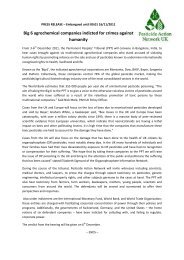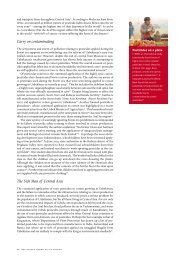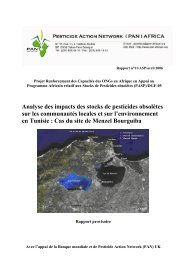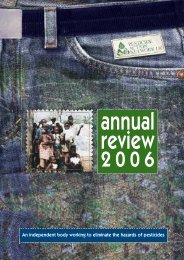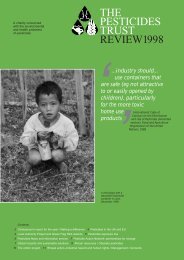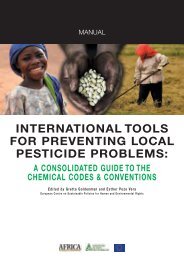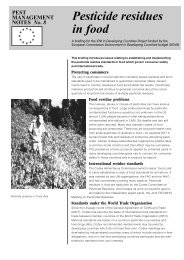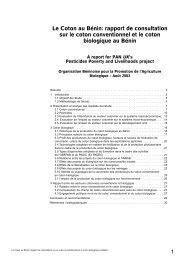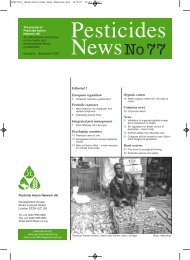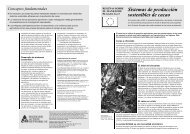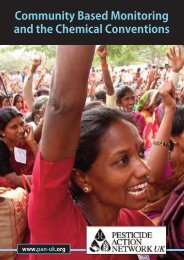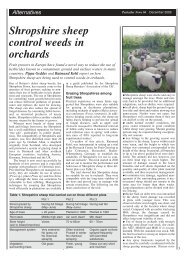Tanzania Multi Stakeholder Map - WebNG
Tanzania Multi Stakeholder Map - WebNG
Tanzania Multi Stakeholder Map - WebNG
You also want an ePaper? Increase the reach of your titles
YUMPU automatically turns print PDFs into web optimized ePapers that Google loves.
laws, approved codes of conduct, etc; lack of information provision and<br />
awareness raising aiming at the small enterprise level on rational storage,<br />
handling, use of pesticides and disposal of waste pesticides and empty<br />
containers and virtual impossibility of wearing protective clothing in hot & humid<br />
climates. Also absence of medical facilities and lack of antidotes; poor<br />
information provisions leading to a lack of knowledge about risks involved; use of<br />
cheap, often more dangerous substances and faulty equipment, Inadequate<br />
management and storage of obsolete stocks and used packaging materials and<br />
lack of facilities for proper waste management.<br />
Mr. Abdul gave a long list of stakeholders and their roles (Refer to the paper on<br />
Appendix III).<br />
3.4.2 The African Stockpiles Project and Civil Society<br />
Mr. Yahya Msangi – TPAWU and Silvani Mng’anya - AGENDA<br />
The presentation gave a brief account of the African Stockpile Project (ASP).<br />
The project aims at clearing obsolete stocks (estimated to be 50,000 tonnes) and<br />
put in place preventive measures. Guiding principles of ASP are attainment of<br />
basic sustainable development criteria, to be country driven process, conjunction<br />
with existing activities, prevention of future accumulation, compliancy with<br />
international standards, destruction technologies and multi - stakeholder<br />
approach. The project will be implemented over 12 – 15 years and to be<br />
implemented through strategic partnership involving multiple stakeholders. Phase<br />
one involves Botswana, Cameroon, Cote d’Ivoire, Ethiopia, Morocco, Mali,<br />
Mozambique, Namibia, Niger, Nigeria, South Africa, Swaziland, Tunisia and<br />
<strong>Tanzania</strong>.<br />
The presenters informed workshop participants that the participating country<br />
should demonstrate ownership and commitment to the objectives of the<br />
programme, collaboration with other stakeholders, preparation: assessment or<br />
inventory of the scale and scope of the problem, prevention – regulation,<br />
extension advice, policies, import controls, participation in international initiatives<br />
– POPs, PIC, Basel, International Dangerous Goods Maritime Code, Bamako.<br />
The implementation process of ASP will involve three major stages, namely<br />
Inventorying, Removal / Disposal, Preventive Measures.<br />
After the presentation, one participant asked whether the stockpile inventory<br />
were conducted involving different stakeholders supervised by NEMC. Isn’t true<br />
that the planned inventory under ASP will be reinventing the wheel, and the<br />
reaction was that the planned inventory is to validate the data and to correct the<br />
18





